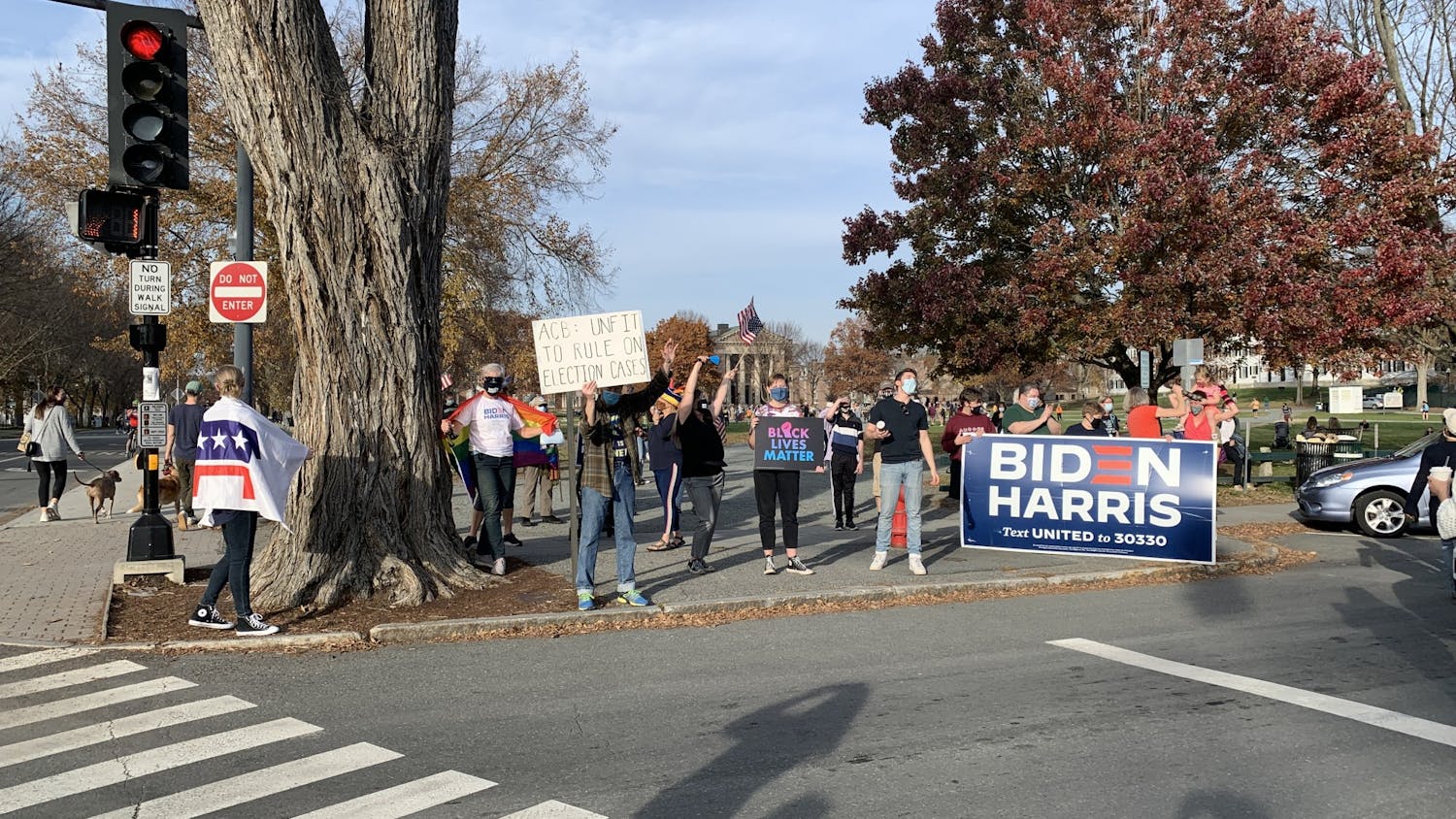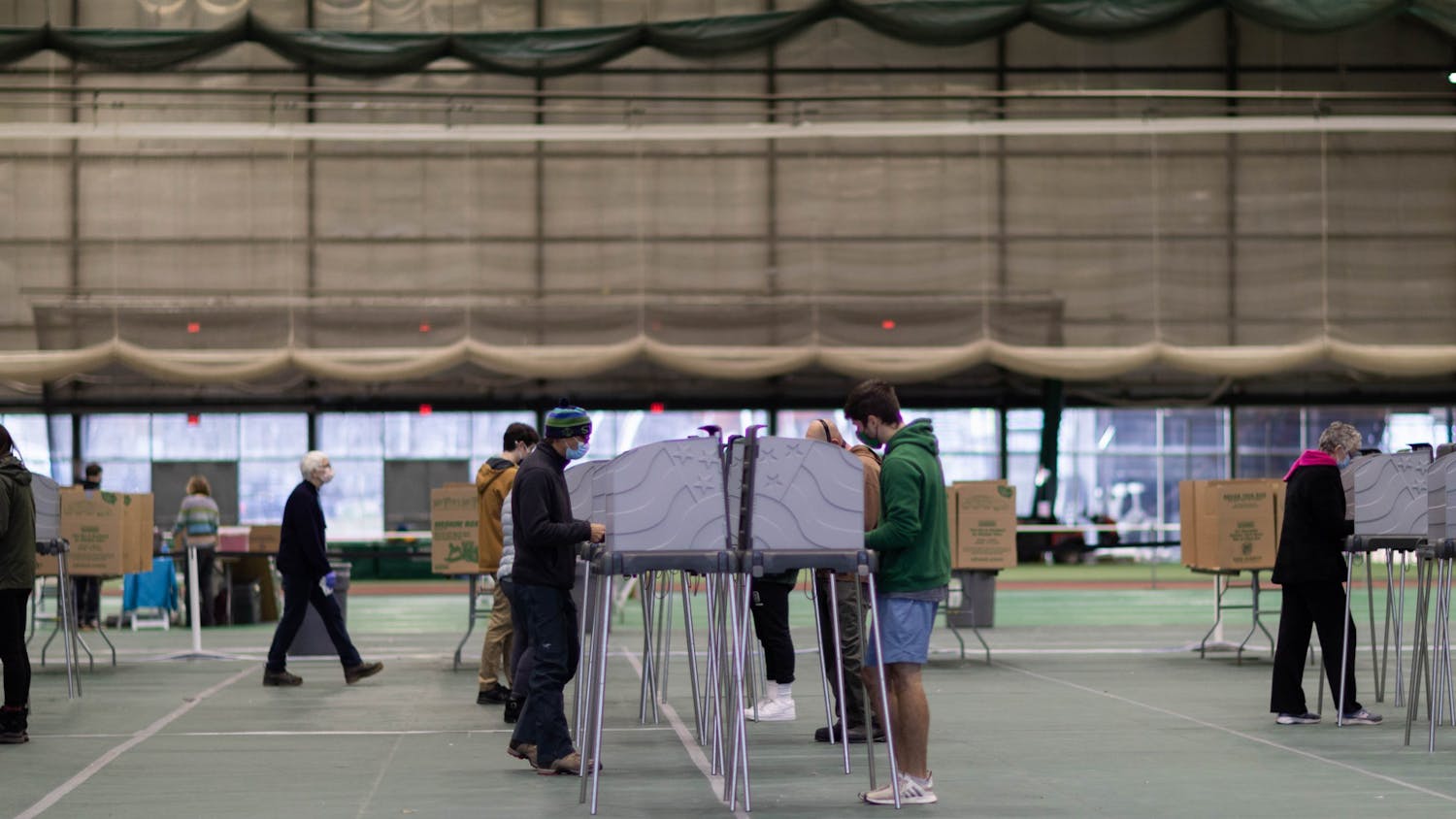Including the recent gun violence incidents in Colorado and Georgia, there have now been 103 mass shootings — defined by the Gun Violence Archive as an incident in which four or more people are shot — in the United States this year. This means that in 2021, the U.S. has averaged more than one mass shooting per day. 2021 is not unique, though — for five consecutive years since 2015, the U.S. has seen more than 300 mass shootings annually. In 2018 and 2019, the U.S. saw more of these events than calendar days.
While American shootings have become commonplace, outside of the U.S. this amount of gun violence is far from normal: The U.S. ranked 32nd in the world in deaths from gun violence per 100,000 people in 2019, with a rate over eight times that of Canada and nearly a hundred times that of the United Kingdom. Gun violence in the U.S. has been increasingly referred to as an epidemic, and these numbers support that conclusion.
Yet despite these epidemic levels of gun violence, the last time the U.S. passed significant gun control legislation was nearly 30 years ago. Countries including Australia and the United Kingdom passed significant legislation on gun control following mass shootings and both subsequently saw declines in gun violence. But in the U.S., where the gun homicide rate is 25 times higher than that of other high-income countries and where thousands of Americans die each year, Congress and the President have done nothing.
During his 2020 campaign, President Joe Biden stated that he would treat gun violence as a “public health epidemic.” In the wake of the recent shootings, he said “I don’t need to wait another minute, let alone an hour, to take common-sense steps that will save lives in the future and to urge my colleagues in the House and Senate to act.” Biden pointed to two bills that strengthening background checks that have passed in the House and are awaiting a vote in the Senate; however, because they require 60 votes, it appears doubtful that they will pass over Republican opposition.
But there is no time to wait for legislative gridlock to relent. People are dying every day at the hands of Congressional inaction. The Biden administration needs to take a different route, one they have already taken with issues such as climate change and the pandemic: executive orders and executive action.
First and foremost, Biden should immediately designate gun violence as a public health crisis. Such a measure would allow for the release of funding to federal agencies such as the Bureau of Alcohol, Tobacco, Firearms, and Explosives and the Department of Health and Human services, which could allow for an increase in inspections of gun dealerships as well as the enactment of more preventative measures to address gun violence before it begins. More adequate enforcement of current laws and more funding for community programs could also have a sizable impact on decreasing gun violence.
The Biden administration should also appoint a more senior White House official as the gun control point person. Currently, Biden’s Domestic Policy Council director Susan Rice occupies this role. However, former president Barack Obama appointed his own vice president — Biden — to the role. President Biden should do the same. Putting a more senior official in charge of this issue would raise the profile of gun control efforts and allow for more centralized coordination of Biden’s governing agenda.
Finally, the three executive orders that are reportedly in the works should be heavily prioritized in the next few weeks. Together, these would serve to close loopholes in background checks, stop the proliferation of “ghost guns” which are assembled at home and thus are currently less traceable and regulated, and expand community violence prevention programs. Once signed, these three measures would immediately contribute to a reduction in gun violence.
It is true that the measures above could easily be undone when the next Republican administration takes office. However, they are not meant to create long-lasting change; they are meant to provide immediate change that can halt gun violence happening in the present and in the near future. Long-lasting gun control reform legislation is necessary to fully stop this epidemic of gun violence, but considering the current makeup of Congress, it is nonsensical to wait for lawmakers to take action. Even if it does happen, it could be months or even years, and change is needed now. These measures can be a catalyst for that change, and will helpfully spur more progressive and permanent legislation in the future.
Since Biden took office in January, none of his promised gun reforms have come to fruition, despite continued instances of gun violence nationwide. However, by taking executive action, Biden has the chance to fulfill his promises and set in motion life-saving reform. The measures above are not enough to put an end to the staggering gun violence rates in the United States. However, they can be taken expeditiously, have immediate effects, and may form the basis for more progressive, longer-lasting gun control legislation in the future.
The U.S.’s current gun laws do not work; the shootings these past few weeks in Colorado and Georgia prove that. We need stricter gun control laws, and we need them now.



